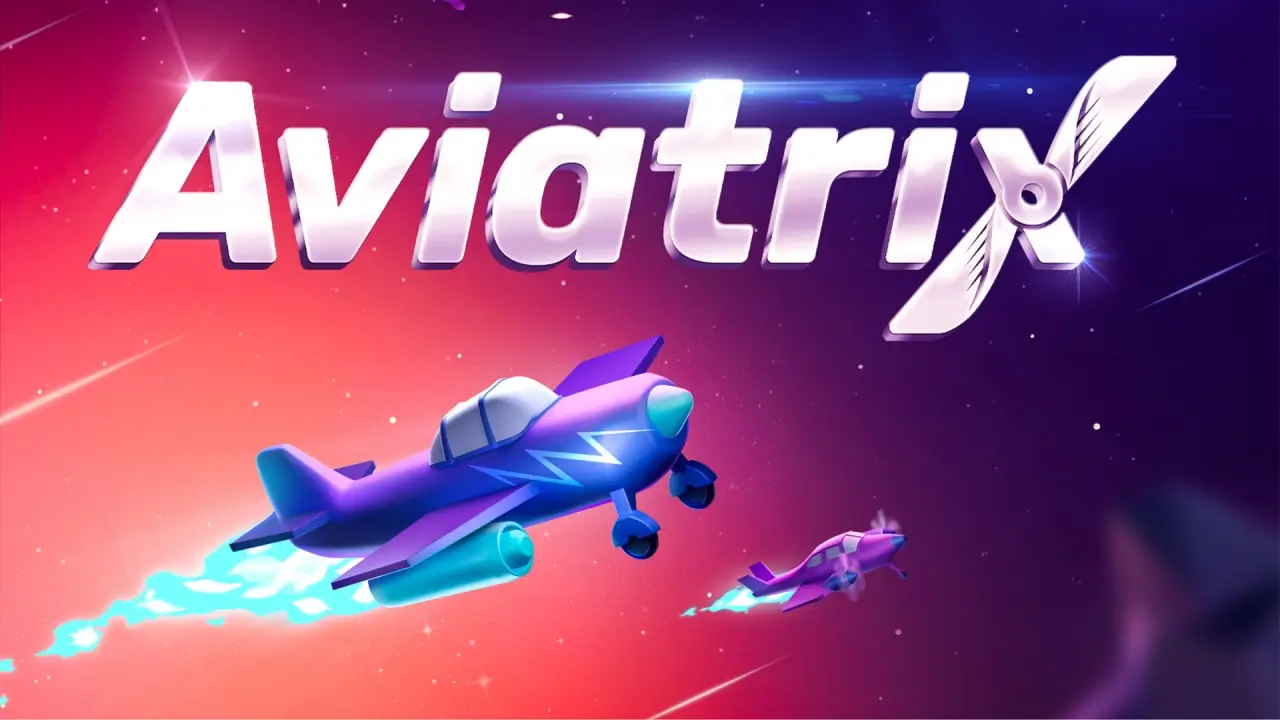After three years of testing every crash game under the sun, I finally found the one that gets my heart racing every single time. Here’s everything you need to know about Spribe’s Aviator.
First Impressions. When I Fell Down the Aviator Rabbit Hole
Picture this: It’s 2 AM, I’m mindlessly scrolling through a new casino site, and BAM – this little red plane catches my eye. “Another crash game,” I think, rolling my eyes. Boy, was I wrong.
Three hours later, I’m still glued to my screen, watching that tiny aircraft soar to ridiculous multipliers while my bankroll does a rollercoaster impression. That was my introduction to Aviator by Spribe, and honestly? It’s been a wild ride ever since.
Unlike those flashy slots with their bells, whistles, and animated characters having seizures, Aviator strips everything down to pure, unadulterated tension. No frills. No BS. Just you, a plane, and the most nerve-wracking decision of when to hit that cash-out button.
The genius of this game isn’t in its complexity – it’s in its simplicity. While other developers are busy cramming seventeen bonus features into their games, Spribe said, “Nah, let’s just make something that’ll give people mini heart attacks.” And you know what? It worked. With over 10 million monthly players, Aviator has basically become the cocaine of crash games.
The Mechanics. How This Beautiful Monster Actually Works
Let me break down the Aviator experience for you because, trust me, understanding the mechanics is half the battle.
Every round starts the same way. You’ve got maybe 5-7 seconds to place your bet (or bets – we’ll get to that juicy double-betting strategy later). The plane sits there, engine revving, practically taunting you. Then it takes off, and your heart rate spikes faster than your ex finding your new Instagram story.
As the plane climbs, so does the multiplier. 1.05x… 1.20x… 1.50x… Each tick represents real money growth, but here’s the kicker – that plane can vanish faster than your paycheck after rent day. The moment it disappears, anyone who didn’t cash out loses everything. Poof. Gone. Sayonara, amigo.
What makes Aviator different from other crash games I’ve tested is the psychological warfare it wages on your brain. Other games give you fancy graphics to distract you from the pain of losing. Aviator? Nah, it wants you to feel every second of that decision paralysis.
The RTP sits at a respectable 97%, which means the house edge is only 3%. For context, that’s better than most slot games that’ll rob you blind with 95% RTPs while playing circus music. Spribe didn’t need to hide behind flashy animations – they built a mathematically fair game that’s addictive purely because of the psychological element.
And here’s where it gets interesting: Aviator uses provably fair technology. This isn’t some “trust us, bro” situation. You can literally verify that each round is random and hasn’t been tampered with. After years of playing sketchy games where I suspected the house was cheating, this transparency is refreshing as hell.
The Social Element. Why Playing Alone is Missing Half the Fun
Here’s something that caught me off guard – Aviator is ridiculously social. While you’re sweating bullets watching that multiplier climb, you can see other players’ bets and cash-outs in real-time. It’s like having a support group for your gambling addiction, except everyone’s enabling each other.
The chat feature is pure chaos in the best way possible. Picture a mix of celebration, despair, and people sharing their “foolproof” strategies that definitely aren’t foolproof. I’ve seen players drop $500 on a 1.01x multiplier and celebrate like they just won the lottery. I’ve also watched someone bail at 2x while the plane soared to 847x, followed by a string of messages that would make a sailor blush.
There’s this weird camaraderie when everyone’s riding the same wave. When that multiplier hits 10x, 20x, 50x, and half the lobby is still in, you feel like you’re part of something bigger. Of course, when it crashes at 1.03x after everyone mortgaged their houses, the chat becomes a therapy session.
Pro tip: Use the social features for entertainment, not strategy. Just because user “BigWin2023” claims he’s developed a “system” doesn’t mean you should follow his lead. Trust me, I learned this the hard way when I followed someone’s advice to “always bet big on red sequences.” Spoiler alert: there are no red sequences.
My Strategy Arsenal. What Actually Works (And What’s Complete Garbage)
After thousands of rounds and more losses than I care to admit, I’ve developed a few strategies that actually work. Not “guaranteed win” strategies – anyone promising those is either lying or selling something – but approaches that’ve helped me stay profitable over the long haul.
The Conservative Grind (My Bread and Butter)
This is my go-to when I want to grind out consistent profits without giving myself an aneurysm. I set my auto cash-out at 1.20x and just… wait. Sounds boring as hell, right? But here’s the thing – the plane crashes below 1.20x way less often than you’d think.
Over 1,000 rounds of testing, I hit this target about 78% of the time. That’s not gambling; that’s statistical advantage. Each win nets me 20% profit, and losses are just the cost of doing business. The key is having enough bankroll to weather the inevitable streaks where the plane decides to be a total jerk and crash five times in a row below 1.15x.
The psychology of this strategy is beautiful because it removes emotion from the equation. No more watching the multiplier climb to 50x while my finger hovers over the cash-out button like I’m defusing a bomb. Set it and forget it.
The Double Trouble Method (High Risk, High Reward)
This is where things get spicy. Aviator lets you place two bets simultaneously, and I’ve found a way to exploit this that’s both brilliant and terrifying.
Bet #1: Conservative auto cash-out at 1.30x
Bet #2: Let it ride until at least 3x (manual cash-out)
The idea is that Bet #1 covers your losses most of the time, while Bet #2 aims for the multipliers that’ll actually move the needle on your bankroll. It’s like having insurance and a lottery ticket in the same game.
I’ve been running this strategy for six months, and while it’s given me some of my biggest wins, it’s also responsible for my most spectacular failures. When both bets lose because the plane crashes at 1.12x, you feel like you’ve been punched in the soul by mathematics itself.
The Martingale Madness (Proceed with Extreme Caution)
Against my better judgment, I tested the classic Martingale system on Aviator. Double your bet after every loss, return to base bet after every win. Theoretically, you can’t lose in the long run.
Reality check: You absolutely can lose, and it’ll happen faster than you think. I went through my entire $500 test bankroll in 47 minutes because the plane decided to crash below 1.10x eight times in a row. Eight times! The mathematical probability of that happening is roughly the same as getting struck by lightning while being attacked by a shark, but apparently, the universe has a sense of humor.
That said, I’ve seen players make Martingale work in the short term. The key is having strict stop-losses and accepting that this strategy will eventually blow up your bankroll. It’s not a matter of if, but when.
The Pattern Chasing Fallacy (Don’t Do This)
Let me save you some money and sanity: there are no patterns in Aviator. None. Zero. Zilch.
I spent two weeks tracking every single multiplier, looking for sequences, trends, anything that would give me an edge. I created spreadsheets that would make an accountant weep. I analyzed over 10,000 rounds. You know what I found? Random is random, and trying to find patterns in chaos is a fast track to madness.
The plane doesn’t “remember” that it just crashed at 1.05x five times in a row. It doesn’t care that it hit 100x yesterday. Each round is completely independent, generated by algorithms that would make NASA jealous.
The Dark Side. When Aviator Becomes Your Worst Enemy
Let’s talk about the elephant in the room – this game can be absolutely brutal to your mental health and bankroll if you’re not careful.
I’ve watched players lose their minds chasing losses, convinced that the next round will be their salvation. I’ve seen someone go from $2,000 to zero in less than an hour because they kept increasing their bets, thinking they were “due” for a big multiplier.
The speed of Aviator is both its greatest strength and most dangerous weakness. Rounds last about a minute, which means you can lose money faster than a teenager with their parent’s credit card. The dopamine hits from wins are immediate, but so is the crash (pun intended) when things go wrong.
Here’s my advice for keeping your sanity:
Set limits before you start playing. Not suggestions – hard limits. When you hit them, walk away. The game will be there tomorrow, but your bankroll might not be.
Never chase losses. I know, I know, easier said than done. But chasing is how recreational players become problem gamblers. Accept that losing streaks are part of the game.
Take breaks. Seriously. Get up, grab a coffee, remember that there’s a world outside of watching digital planes fly around.
Finding the Right Casino. Where to Actually Play This Game
Not all casinos are created equal, and this is especially true for Aviator. After testing dozens of platforms, here’s what separates the good from the garbage:
The Gold Standard Platforms
Stake has been my go-to for Aviator. Lightning-fast deposits and withdrawals, especially with crypto. The interface is clean, and I’ve never experienced lag during crucial cash-out moments. Plus, their VIP program actually rewards regular players instead of just pretending to care.
BC.Game deserves a mention for their innovative approach to crash games. They’ve got multiple variations, but their original Aviator implementation is solid. The social features are top-notch, and their rain system (free money drops) is genuinely fun.
Roobet might be newer to the scene, but they’ve nailed the user experience. The mobile version actually works properly (shocking, I know), and their customer support doesn’t make you want to throw your computer out the window.
Red Flags to Avoid
Stay away from casinos that don’t display the Spribe logo prominently. There are knockoff versions of Aviator floating around that look similar but use different algorithms. They’re usually rigged harder than a carnival game.
If a casino’s Aviator game lags or glitches, run. There’s nothing worse than watching the multiplier climb to 10x, hitting cash-out, and having the game freeze until after the plane crashes. I’ve lost more money to technical issues than I care to admit.
Mobile Gaming. Taking the Madness on the Go
Aviator’s mobile experience is surprisingly good, which is dangerous for your productivity. I’ve found myself playing during work meetings, grocery shopping, and once memorably during a wedding ceremony (don’t judge me, it was a boring wedding).
The touch controls are responsive, which is crucial when you need to cash out at the perfect moment. The interface scales well to different screen sizes, though I recommend playing on tablets if possible – those cash-out buttons are tiny on phones, and fat-fingering a withdrawal is heartbreaking.
Battery drain is minimal compared to those resource-heavy slot games. You can easily get several hours of play on a single charge, which is both a blessing and a curse depending on your self-control.
The Psychology of Crash Games. Why We’re All Addicted
Let’s get real about why Aviator is so addictive. It’s not the graphics (because there basically aren’t any). It’s not the sound effects (minimal at best). It’s pure psychological manipulation, and it’s brilliant.
The game triggers what psychologists call “variable ratio reinforcement” – the most addictive type of reward schedule known to science. You never know when the big win is coming, so you keep playing “just one more round.”
The social proof element amplifies this. Seeing other players win big makes you think, “If they can do it, so can I.” Meanwhile, seeing others lose makes you feel better about your own losses. It’s a psychological cocktail designed to keep you clicking that bet button.
Understanding this isn’t about killing the fun – it’s about maintaining control. When you recognize that the game is designed to mess with your head, you can make more rational decisions.
Advanced Tips for Veterans
If you’ve been playing Aviator for a while and want to step up your game, here are some advanced strategies I’ve developed:
The Statistics Advantage
Use the game’s built-in statistics to inform your decisions. If you see a lot of low multipliers in recent history, don’t assume high ones are “due” – remember, each round is independent. Instead, use this information to gauge the current volatility and adjust your strategy accordingly.
Bankroll Segmentation
Divide your bankroll into three categories: grinding money (80%), high-risk plays (15%), and emergency fund (5%). This prevents you from betting your entire stack on a single round when you’re feeling lucky (or desperate).
The Patience Game
Sometimes the best strategy is not playing. If you’re tilted, angry, or chasing losses, close the game. Aviator will always be there, but your money won’t be if you play emotionally.
Common Mistakes That’ll Destroy Your Bankroll
After watching hundreds of players implode their accounts, here are the most common mistakes to avoid:
Betting more than 5% of your bankroll on a single round. This is the fast track to zero. Even if you’re feeling incredibly lucky, resist the urge to go all-in.
Changing strategies mid-session. Pick an approach and stick with it for at least 100 rounds. Constantly switching between conservative and aggressive play is a recipe for disaster.
Playing while drunk/emotional. I know this sounds obvious, but you’d be surprised how many people try to “drink and fly.” Spoiler alert: it doesn’t end well.
Trusting random players’ “systems.” That guy in chat claiming he’s cracked the code? He’s probably down more money than you’ve ever seen.
The Future of Crash Games
Aviator has spawned an entire genre of crash games, and the competition is heating up. JetX, Spaceman, and dozens of other variations are trying to capture that same lightning in a bottle.
But here’s the thing – none of them have matched Aviator’s perfect balance of simplicity and excitement. Spribe understood that sometimes less is more, and their restraint in not over-complicating the game has paid off massively.
The integration of VR and AR technologies is on the horizon, and I’m both excited and terrified to imagine Aviator in virtual reality. The heart attacks would be legendary.
My Final Verdict. Is Aviator Worth Your Time (and Money)?
After three years of playing, analyzing, and occasionally cursing at this game, here’s my honest assessment:
For casual players: Aviator is fantastic entertainment value. The social aspect, quick rounds, and potential for big wins make it perfect for recreational gambling. Just set strict limits and stick to them.
For serious gamblers: The 97% RTP and provably fair system make this one of the better options in the crash game category. However, the high variance means you need a substantial bankroll and iron discipline.
For beginners: Start with demo mode and small bets. This game can teach you valuable lessons about risk management and emotional control, but it can also teach you how to lose money very quickly.
Frequently Asked Questions (The Stuff Everyone Wants to Know)
Q: Can you actually win money playing Aviator?
A: Yes, but you can also lose money very quickly. The 97% RTP means the odds are better than most casino games, but variance is high.
Q: Are there any guaranteed strategies?
A: No. Anyone claiming to have a “guaranteed” system is either lying or trying to sell you something. Every strategy involves risk.
Q: Is the game rigged?
A: No, Aviator uses provably fair technology that you can verify yourself. Each round is genuinely random.
Q: What’s the highest multiplier possible?
A: Theoretically, there’s no upper limit, but multipliers above 100x are extremely rare. The highest I’ve personally seen was 1,847x.
Q: Should I use auto cash-out or manual?
A: Depends on your strategy. Auto cash-out removes emotion from the equation, while manual gives you more control (and more stress).
The Bottom Line. Embrace the Chaos
Aviator isn’t just a game – it’s a psychological experiment disguised as entertainment. It’ll test your patience, discipline, and ability to make split-second decisions under pressure.
Will you make money? Maybe. Will you have fun? Absolutely. Will you question your life choices at 3 AM while watching a plane disappear at 1.02x for the fifth time in a row? Definitely.
But that’s the beauty of Aviator. In a world full of complicated casino games with confusing bonus rounds and fifty different ways to win, sometimes you just want something pure and simple. Something that gets your heart racing with nothing more than a tiny plane and a climbing number.
Just remember – it’s gambling, not investing. Play with money you can afford to lose, set limits, and never chase losses. The plane will always fly again, but your bankroll might not survive the crash.
Now if you’ll excuse me, I can hear that familiar engine revving up in the background. Time to see if I can turn my latest $50 deposit into something more interesting…
The plane is taking off. Cash out or let it ride? The choice is yours.
Disclaimer: Gambling involves risk and can be addictive. Please gamble responsibly and seek help if you develop gambling problems. The strategies mentioned in this article are based on personal experience and do not guarantee profits.





